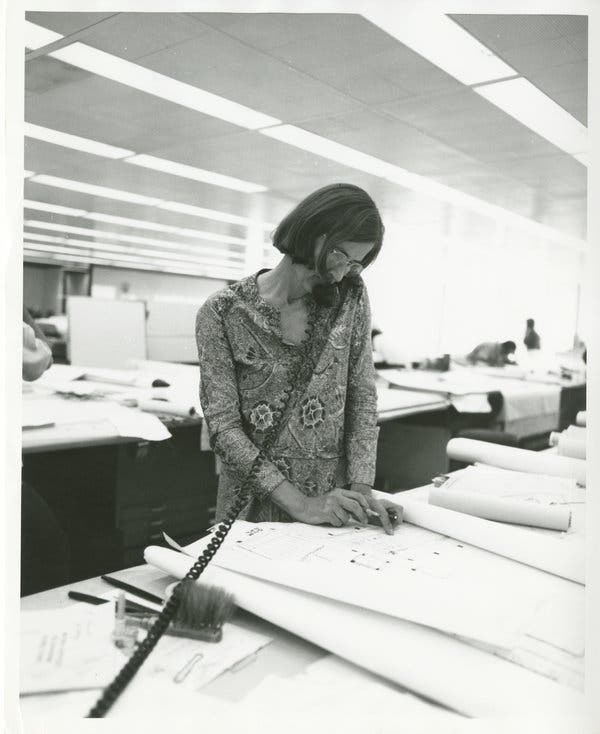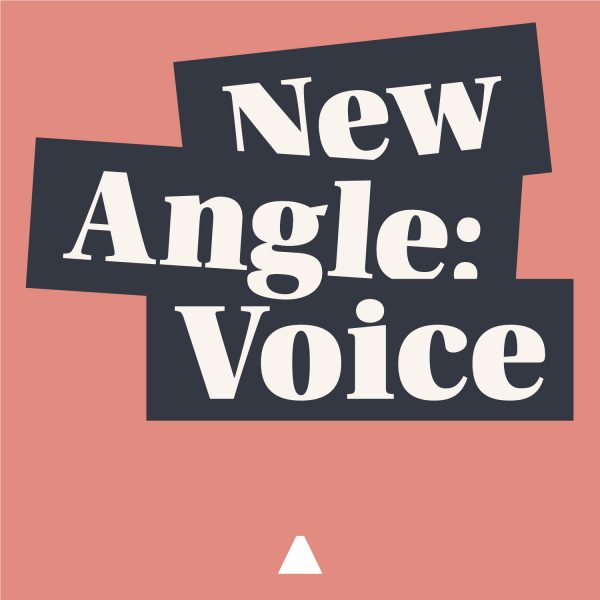As an architect, Natalie de Blois loved systems – understanding how things worked. For her, it wasn’t just pretty buildings, she challenged the code and questioned the status quo. And like the buildings she designed, there was a certain complexity to Natalie herself. She was a woman of resilient beauty, inspiring yet distant, ahead of her time. Often overshadowed by her male counterparts, New Angle Voice aims to shed light on her life’s work and legacy with this episode.
Natalie de Blois contributed to some of the most iconic Modernist works created for corporate America, all while raising four children. After leaving this significant mark on postwar Park Avenue, she transferred to the SOM Chicago office, where she became actively involved in the architecture feminist movement and was one of the leaders in the newly formed Chicago Women in Architecture advocacy group. Later, she finished her career as a professor at UT Austin, where she trained a future generation of architects.
In the New Angle: Voice podcast, “Hear from historians, family, colleagues, and the women themselves, how it was to be an architect coming up in the early 20th century. Imagine sitting with these pioneering women, who opened up the magic of the built environment professions to all who had the gifts, grit and persistence to endure.”





Comments (3)
Share
I feel kind of bad for this episode. It did convince me that the story of Natalie de Blois needed to be told.
It did not, however, tell the story of Natalie de Blois very well.
Although it repeated multiple times that the achievements of Natalie de Blois need to be more recognized, it completely glossed over what those achievements actually were. The descriptions of her work merely extended to how people reacted to it. In essence, the episodes simply says “she worked very hard and was very good at what she did”. And then it drones on about how people reacted to her, rather than telling us what exactly they were reacting to.
This, I think, is what prevents the episode from being great. We hear a bunch of people saying *that* she was a great architect, but absolutely nothing about *how* she was a great architect. Instead, the angle of “pioneering woman in a male-dominated field” is told in a very generic way. “Natalie worked hard and was skilled, but she did not feel included by all the men in her profession and so had to work even harder to prove herself.” This is, sadly, a story that also must be told, but Natalie was reduced to a mere example of a pioneering woman (which, frankly, has been told many times before), while her celebrated work that constitutes the impression she left on the world is relegated to background details.
I can not imagine that the episode would have been much different if Natalie had been, say, one of the first women to be a sculptor, car designer, grocery store owner, or professional billiards player. You could have the same story about men not recognizing her work, other women in the field talking about her pioneering spirit, her students admiring her personality, and her descendants being sad about her work being demolished. The profession itself and how she approached it is reduced to irrelevance. That is quite sad for a design podcast.
This was an interesting episode, but I agree with Erland, I found myself wanting to know more about Natalie’s creative process, her inspiration, what she considered to be beautiful. I have only visited NYC once, I have no idea what any of the mentioned buildings (lever, Union Carbide, Pepsi Cola) look like. I heard one described as a jewel box…hmm, makes me think of ornate wood boxes, not a gleaming glass and steel building.
Was she all about ruthless efficiency? creating environments that were nurturing and cosy? creating a built environment that communicated with the street and creates community? Did she care about sustainability? It was like listening to a food show where the only descriptors of the food were….This is so good, yum, this is delicious…without us able to see, smell or taste the final product or understand what motivated the chef. Just offering constructive criticism from the heart like Natalie would have.
I loved that her accomplishments were featured in this story, but when I went to look for her biography, there’s hardly anything there. Hopefully that will change because of this story.